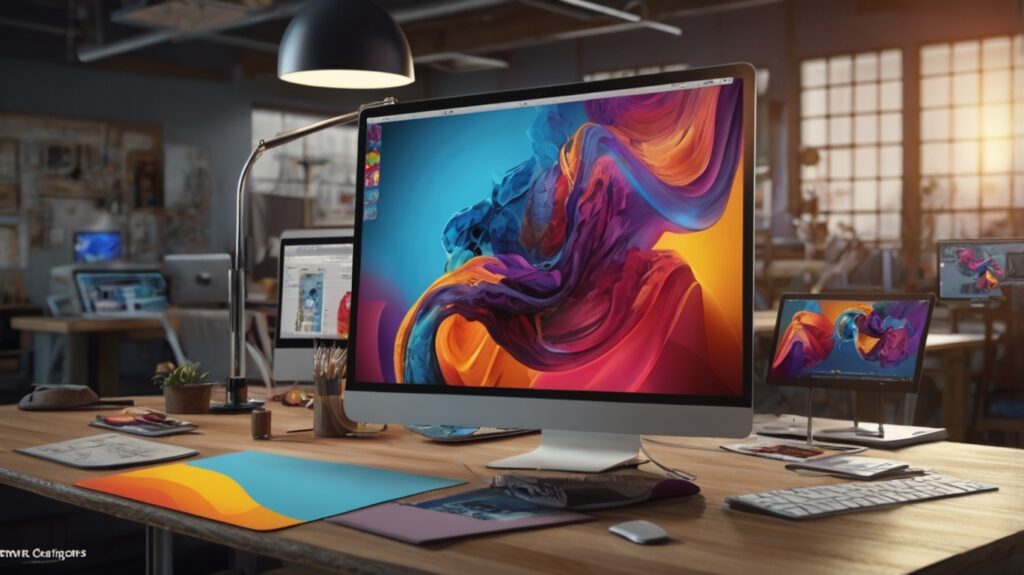Technology Today:
In our fast-paced digital age, technology is evolving at lightning speed—faster than most of us can keep up with. Every day, headlines showcase groundbreaking innovations, from artificial intelligence reshaping industries to space tech reaching new frontiers. But beyond the buzzwords and hype, there’s a deeper story: one of human creativity, global transformation, and the redefinition of how we live, work, and connect with the world around us.
Let’s take a closer, more human look at the latest news and trends in technology—what’s really happening behind the scenes, what’s coming next, and how it all affects our everyday lives.
1. Artificial Intelligence: Beyond the Headlines
Artificial intelligence (AI) has quickly moved from niche laboratories into our homes, workplaces, and even our pockets. But the AI story is more than just ChatGPT or image generators—it’s a rapidly growing ecosystem of tools that are transforming everything from education and healthcare to agriculture and finance.
In education, AI tutors are helping students learn at their own pace, offering personalized feedback that would be impossible in a traditional classroom. In medicine, AI-driven diagnostics are catching diseases earlier and with greater accuracy. Just recently, Google’s DeepMind announced AlphaFold 3, an upgraded version of its revolutionary tool for protein structure prediction. This breakthrough could dramatically accelerate drug discovery and biotech research.
However, the rise of AI also brings ethical questions. Concerns about job displacement, data privacy, and algorithmic bias are real—and deserve attention. The good news? Many companies and governments are finally taking these concerns seriously, investing in AI ethics boards and transparent model development.
2. Quantum Computing: The Dawn of a New Era
Quantum computing has long sounded like science fiction. But it’s becoming very real—and very powerful. In 2025, companies like IBM, Google, and startups like Rigetti are racing to build quantum machines that can solve problems far beyond the reach of classical computers.
Why does this matter? Quantum computing could revolutionize fields like cryptography, climate modeling, financial forecasting, and drug development. For example, simulating molecular interactions at a quantum level could unlock new medicines in a fraction of the time.
We’re not quite at the “quantum advantage” stage for most real-world applications yet, but every breakthrough brings us closer. It’s a reminder that while the present is exciting, the future could be extraordinary.

3. The Rise of the Metaverse and Spatial Computing
Although the hype around the “metaverse” has cooled since its peak in 2022, spatial computing—the core concept behind it—is quietly gaining traction. Apple’s Vision Pro headset, launched in early 2024, marked a new chapter in mixed reality, blending physical and digital worlds in surprisingly fluid ways.
From virtual meetings that feel almost real to immersive education experiences that transport students to ancient civilizations, spatial computing is redefining presence, productivity, and even entertainment. Companies are also using the tech for virtual prototyping, real estate tours, and medical training.
What’s clear is that the metaverse is no longer just a fantasy—it’s slowly becoming part of our digital lives. But its success will depend on user comfort, affordability, and, above all, meaningful use cases.
4. Sustainable Tech: Green is the New Gold
Climate change has become a global emergency, and technology is stepping up to play its part in the solution. In 2025, sustainability isn’t just a buzzword—it’s a business model, a social mission, and a driving force behind innovation.
Solar power continues to break records in efficiency and affordability. Energy storage is improving, with better batteries and even green hydrogen on the rise. Smart grids and Internet of Things (IoT) devices are helping manage energy use more efficiently across homes and cities.
One of the most exciting developments is carbon capture technology. Several startups are working on machines that can extract CO₂ directly from the air, while others are building AI models to predict and prevent environmental disasters.
Tech giants like Microsoft, Amazon, and Google have pledged to become carbon-negative, and while progress is slow, the pressure is mounting. Sustainability is no longer optional—it’s essential for survival.
5. Health Tech: From Wearables to Digital Twins
Healthcare has always been a high-stakes field for innovation, but the past few years have dramatically accelerated change. One of the biggest drivers? The blending of data, AI, and personalized care.
Wearable devices—from Apple Watches to Oura Rings—are giving users unprecedented insights into their health. Real-time monitoring of heart rate, sleep patterns, oxygen levels, and even stress indicators allows individuals and doctors to detect issues before they become serious.
But the frontier goes even further. “Digital twins” of the human body—a real-time, AI-simulated version of an individual’s biological systems—are being developed to predict how a person might respond to specific treatments or drugs. This could revolutionize personalized medicine and reduce costly trial-and-error treatments.
Telemedicine and remote care, accelerated by the COVID-19 pandemic, are now normalized in many parts of the world. And with 5G and edge computing, we’re heading into an era where real-time diagnostics and remote surgery could become standard.
6. Cybersecurity: A Constant Battle
As technology becomes more embedded in our lives, so too do the risks. Cyberattacks are more sophisticated, more frequent, and more damaging than ever before. In 2024 alone, global data breaches cost businesses over $7 trillion, according to cybersecurity firm CrowdStrike.
But defenses are evolving, too. AI-powered cybersecurity systems can now detect and neutralize threats in real-time, learning from patterns and adapting dynamically. Zero-trust architecture—a model where nothing inside or outside a network is trusted by default—is becoming the new norm.
Meanwhile, digital identity is undergoing a transformation. Biometric authentication (like facial and voice recognition), decentralized identity models using blockchain, and passwordless systems are making access more secure—and more user-friendly.
7. The Democratization of Innovation
One of the most heartening trends in today’s tech landscape is the democratization of innovation. Thanks to cloud computing, open-source platforms, and no-code/low-code tools, you no longer need a billion-dollar budget or a PhD to create something meaningful.
Young entrepreneurs in Africa are building payment solutions tailored to local needs. Rural communities in India are using drones to monitor crops and improve yields. Independent artists are leveraging AI to create music and films that rival Hollywood productions.
Technology is no longer just something “big tech” does—it’s something anyone with a laptop and an idea can harness. And that’s a powerful shift.
8. Space Tech: Humanity’s Next Frontier
With NASA’s Artemis missions preparing for a return to the Moon and private companies like SpaceX and Blue Origin pushing the limits of space travel, 2025 is shaping up to be a pivotal year in space technology.
Reusable rockets, satellite mega-constellations, and lunar landers are no longer dreams—they’re reality. Starlink is already bringing internet access to remote parts of the world, while new satellites monitor climate, agriculture, and disaster zones from above.
The ambition? Not just space exploration, but space economy. Mining asteroids, building space stations, and even colonizing Mars are long-term goals that once seemed outrageous—but now, they’re part of serious roadmaps.
9. The Human Side of Tech
Amid all the innovation, it’s important to remember: technology is not just about machines, codes, or devices. It’s about people. Behind every breakthrough are teams of scientists, developers, dreamers, and everyday users shaping what comes next.
But there are challenges, too. Tech fatigue, mental health concerns related to screen time, and the spread of misinformation are real issues that need addressing. As we marvel at what’s possible, we must also ask: is this helping us live better, more meaningful lives?
Technology should empower—not overwhelm. It should connect—not isolate. That balance will define whether the future we’re building is truly a better one.
Conclusion: The Road Ahead
Technology today is more than a news cycle—it’s a force that touches every part of our lives. It brings hope, raises questions, and demands responsibility. The trends we’ve explored—AI, quantum computing, spatial computing, green tech, healthcare innovation, cybersecurity, democratized tools, and space exploration—are shaping a future that is as complex as it is inspiring.
But here’s the truth: the future of technology isn’t written yet. It’s still being coded, imagined, and built by people like you—readers, thinkers, creators, and users. We all have a stake in where it goes from here.
So stay curious. Stay informed. And above all, stay human in a world increasingly shaped by machines.
Technology Today:
FAQ – Technology Today: Latest News and Emerging Trends
1. What are the most important technology trends shaping our future?
The key trends include artificial intelligence (AI), quantum computing, the metaverse and spatial computing, sustainable technology, health tech innovations, cybersecurity advancements, democratization of innovation, and space technology.
2. How is artificial intelligence changing everyday life?
AI is transforming industries such as education, healthcare, finance, and entertainment by enabling personalized learning, faster diagnostics, smarter financial decisions, and creative content generation.
3. What is quantum computing, and why does it matter?
Quantum computing leverages quantum mechanics to perform calculations at speeds unattainable by classical computers. It promises breakthroughs in cryptography, drug discovery, climate modeling, and complex problem solving.
4. Is the metaverse just a hype, or is it becoming real?
While the hype around the metaverse has calmed, spatial computing technologies that blend physical and digital realities are growing steadily, with practical applications in remote work, education, healthcare, and entertainment.
5. How is technology contributing to sustainability?
Technology advances in renewable energy, energy storage, carbon capture, and smart grids are helping reduce carbon footprints and combat climate change globally.
6. What are digital twins, and how do they impact healthcare?
Digital twins are AI-powered, real-time digital replicas of human biological systems that allow for personalized medicine by predicting individual responses to treatments and improving healthcare outcomes.
7. What cybersecurity challenges do we face today?
With increasing cyber threats, challenges include data breaches, ransomware, and identity theft. However, AI-powered security, zero-trust models, and biometric authentication are improving defenses.
8. How is innovation becoming more accessible worldwide?
Cloud computing, open-source platforms, and no-code tools empower individuals and small businesses globally to create and innovate without large budgets or technical expertise.
9. What recent developments are happening in space technology?
Advancements include reusable rockets, satellite internet constellations like Starlink, lunar missions, and plans for asteroid mining and Mars colonization.
10. How can individuals stay updated on technology trends?
Following reputable tech news sources, participating in online communities, attending webinars, and engaging with industry experts are great ways to stay informed.
read also:




